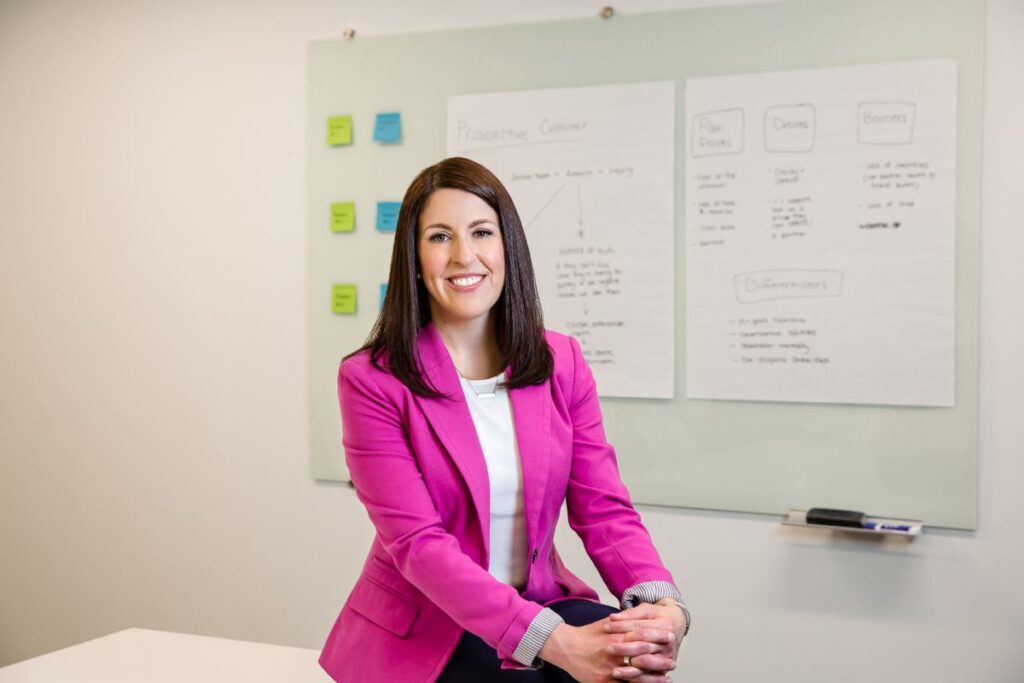A New Way to Think about Your Salary

If you’ve been reading for awhile (thank you, by the way!), you may have picked up on the not-so-subtle hints that the in-between has been on my mind for months. Many, many months. I don’t think that I’ve explicitly said it here, but back in May, I did leave the company to which I’d given eight years of my life. At the risk of sounding dramatic, it was like a divorce for me. I’d been with my company longer than I’d been with my husband, and we’d given each other a lot during that time.
There was no big bang event that caused me to stomp out and declare, “That’s it!” Instead, as it is when two people have tried so hard but just can’t make it work anymore, it was an unraveling over time. I did not make the decision to leave lightly. There were many nudges, opportunities, and (I’ll say the forbidden work word) feelings… that ultimately helped me understand that our “relationship” was coming to an end, and we’d both be better off.
I give this background to share: over the coming months, I’ll be slipping in little lessons I learned along the way that helped me see that it was finally time to say goodbye. These lessons were sometimes from an internal, intangible flicker but mostly came from the outside wisdom of others, like this…
As you’d calculate, leaving the corporate phase of my career also meant leaving a steady, healthy paycheck. Please hear no remorse in my voice – not even a hint of longing. The idea of career “tweak” had been in my heart – and a little in my mind – for some time, but it took a long time to take the leap. You see, while my intuition was raising its voice a little louder each day, real life muffled the sound. And let’s be honest: when I say “real life,” I mean money and ego.
Afterall, I was the breadwinner. That identity carries a lot of hard work, ambition, and pride. I’m excited to say that I wasn’t alone in wearing this badge of honor. I recently read that 40% of working moms are the primary earners in the US, up from 10% in 1960 (woohoo!). But like I said, this was one of my identities, and the thought of letting go of that freaked me the f*** out. The fear was so significant that I wrote a business plan for a start-up that would help women like me organize, understand, and action our complicated finances so that we could create our dream lives. It took one year of my life and 55 pages.
The start-up idea was a nice way to solve the problem for other women, but what was I going to do? (It’s hard to take your own advice, isn’t it)?
I decided to do math. Lots and lots of math. I’d use my go-to methodology for decision making: find objective information that would support the decision I wanted to make 🙂 The result was a 65 row Excel sheet, summarizing our multi-national assets, cash, equity vesting schedules, tax implications, etc. When our financial adviser asked me how many years of cash flow we had, I could answer to the decimal point, with the complementary if-then statements. In short, we were good.
Yet, I still couldn’t shake my non-logical trepidation.
Then one day, a friend who was in a similar stay-or-leave situation at his own company, matter-of-factly said something to me that was obvious but so striking. In fact, I had already done for my family exactly what he was suggesting, but his different framing completely changed the way I saw it. It was the precise vocabulary I needed to detach my emotions. He stated,
“It takes me $10,000 a month to run my family.
Until I can get the same ‘revenue’ from another source, I stay.”
The idea of framing your family like a business made me see the situation completely differently (#throughtheeyesofguys – ha!). I couldn’t believe it. For me, this transformed the decision from emotional to simple business. My dozens of calculations told me that even if I didn’t bring in new personal “revenue” for some time, we’d be fine. We had enough cash and assets to cover our family’s “operating expenses” for the next three years – a runway that made me proud.
After listening to my wise friend and re-framing my own situation in his words, listening to my intuition and leaving my job became an obvious business decision. And ironically, it made more sense to me than any other decision I’d made in business in a long, long time.
Image from domino


